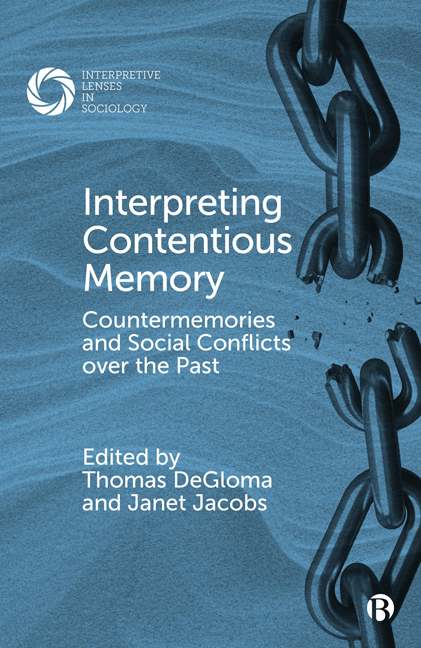Book contents
- Frontmatter
- Contents
- Series Editors’ Preface: Interpretive Lenses in Sociology – On the Multidimensional Foundations of Meaning in Social Life
- Notes on Contributors
- Acknowledgments
- 1 Introduction: Interpreting Contentious Memories and Conflicts over the Past
- PART I Interpreting Memories in the Social Dynamics of Contention
- PART II Racism, Exclusion, and Mnemonic Conflict
- PART III Genocide, Memory, and the Historicizing of Trauma
- Index
11 - Changing Memories of the Shoah in Post-Communist Countries: New Memories and Conflicts
Published online by Cambridge University Press: 20 January 2024
- Frontmatter
- Contents
- Series Editors’ Preface: Interpretive Lenses in Sociology – On the Multidimensional Foundations of Meaning in Social Life
- Notes on Contributors
- Acknowledgments
- 1 Introduction: Interpreting Contentious Memories and Conflicts over the Past
- PART I Interpreting Memories in the Social Dynamics of Contention
- PART II Racism, Exclusion, and Mnemonic Conflict
- PART III Genocide, Memory, and the Historicizing of Trauma
- Index
Summary
Memory is never static, but rather a construction embedded in changing personal, social, and temporal settings. Memory is never neutral, and reflects the interaction between personal and dominant collective memories. When a political culture changes, recollections and collective memories become contested, and new ones become dominant and come to the fore. This is clearly visible when we look at the “new” histories in the post-communist world, where the surge of commemorative work that highlights the World War II-era victimization of citizens by communist forces is driven by agents with nationalist ideologies and agendas competing with the memories of the Shoah. These form part of the mnemonic tensions in many places throughout Europe which seek to identify victims and perpetrators and their histories and focus on their own particular sufferings; they want to be recognized. Their arguments reveal how nationalist ideologies can conflict with widely accepted versions of history. The result is a political effort to monopolize victimhood, and an appeal to the West to take suffering under communism more seriously. It is a renewed nationalist narrative that celebrates a past that is replete with struggles for freedom and pride, one that has been viciously suppressed for decades. The new view can be imposed by the state or a dominant political group, and any resistance to its acceptance can be punished, since the new regimes are typically undemocratic and intolerant of opposing views. In this chapter, I discuss some important cases and show how history has become politicized.
Nationalism, pride, and shame about the past have created new historical canons and destroyed old ones. Historical research is subordinated to the forces of politics that seek to remember or to forget. This is most acute in Russia, where an assault against the NGO Memorial and the kind of research being done there tries to silence the counter-histories of historians who listen to stories of oppression, persecution, murder, and the sad lives of the millions who were sent to the Gulag. Memorial has excavated a shameful past which is not embraced by those who want a positive history of Russian heroism that celebrates the fight against the Nazis without mentioning the communist terror. Memorial has created an enormous archive, and participants are actively interviewing everywhere in Russia, even deep in Siberia.
- Type
- Chapter
- Information
- Interpreting Contentious MemoryCountermemories and Social Conflicts over the Past, pp. 217 - 235Publisher: Bristol University PressPrint publication year: 2023

